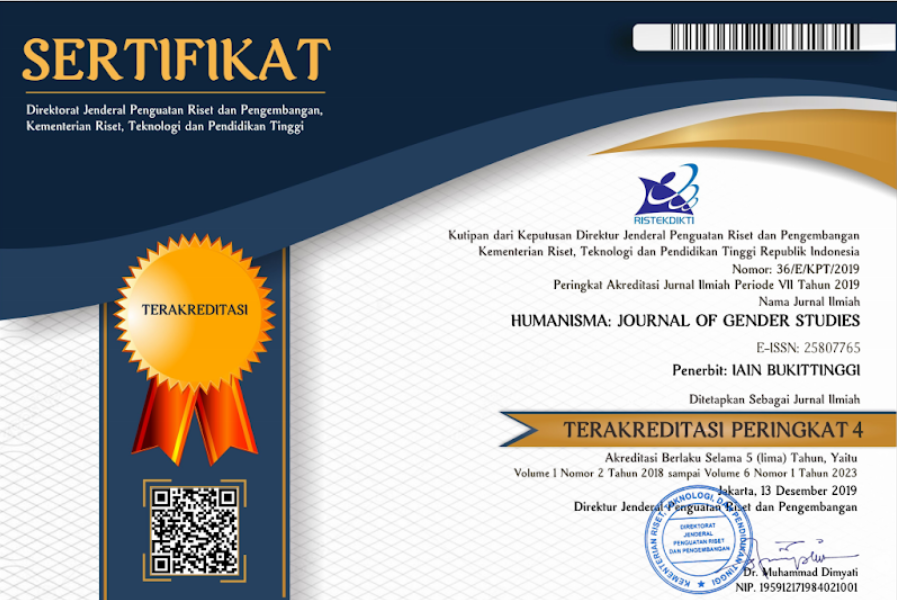Kaili Women in Strengthening The Family Economy
Authors :
Abstract
The role of women in development is very significant from a social, cultural, and economic perspective. The existence of women has an important role in both the family and society. This study aims to analyze the role of women Kaili business actors in the Palu City Forest in providing family economic strengthening from a social and cultural perspective. This study was designed using a quantitative approach. The population of this research is Kaili women who have businesses in the Palu City Forest. The sample of this research is women Kaili business actors in the Palu City Forest, with a total of 183 respondents. Data collection techniques consist of observation, questionnaires, and documentation. Data analysis uses descriptive statistical analysis. The results of the study show that women Kaili business actors in the Palu City Forest play a role in encouraging the strengthening of the family economy. From a social perspective, women Kaili business actors have a high level of social bounding, which is indicated by the kinship of women Kaili with other families that creates empathy and togetherness. This can also encourage the strengthening of the family economy. Meanwhile, from a cultural perspective, the level of inequality among women Kaili business actors in the Palu City Forest is strongly influenced by culture. This inequality means that women Kaili business actors in the Palu City Forest do not feel competitive and different from other business actors, so they feel relaxed in doing business and have an impact on strengthening the family economy.
Peran perempuan dalam pembangunan sangat signifikan dilihat dari sudut pandang sosial, budaya, dan ekonomi. Keberadaan perempuan mempunyai peranan penting baik dalam keluarga maupun masyarakat. Penelitian ini bertujuan untuk menganalisis peran perempuan pelaku usaha Kaili di Hutan Kota Palu dalam memberikan penguatan ekonomi keluarga dari segi sosial dan budaya. Penelitian ini dirancang dengan menggunakan pendekatan kuantitatif. Populasi penelitian ini adalah ibu-ibu Kaili yang mempunyai usaha di Hutan Kota Palu. Sampel penelitian ini adalah perempuan pelaku usaha Kaili di Hutan Kota Palu yang berjumlah 183 responden. Teknik pengumpulan data terdiri dari observasi, angket, dan dokumentasi. Analisis data menggunakan analisis statistik deskriptif. Hasil penelitian menunjukkan bahwa perempuan pelaku usaha Kaili di Hutan Kota Palu berperan dalam mendorong penguatan perekonomian keluarga. Dari segi sosial, perempuan pelaku usaha Kaili mempunyai tingkat ikatan sosial yang tinggi, ditandai dengan kekerabatan perempuan Kaili dengan keluarga lain sehingga menimbulkan rasa empati dan kebersamaan. Hal ini juga dapat mendorong penguatan perekonomian keluarga. Sedangkan dari segi budaya, tingkat ketimpangan di kalangan perempuan pelaku usaha Kaili di Hutan Kota Palu sangat dipengaruhi oleh budaya. Ketimpangan tersebut membuat perempuan pelaku usaha Kaili di Hutan Kota Palu tidak merasa kompetitif dan berbeda dengan pelaku usaha lainnya, sehingga merasa santai dalam berusaha dan berdampak pada penguatan perekonomian keluarga.
Keywords
Full Text:
PDFReferences
Abu-Rabia-Queder, S., Morris, A., & Ryan, H. (2018). The economy of survival: Bedouin women in unrecognized villages. Journal of Arid Environments,
, 80–88. https://doi.org/10.1016/j.jaridenv.2017.07.008
Ahdiah, I. (2017). Nosalia Poboti Pentas Peran Perempuan Suku Kaili di Kota
Palu. Kinesik, 4(1), 144002.
Artazcoz, L., Borrell, C., Benach, J., Cortès, I., & Rohlfs, I. (2004). Women, family demands and health: The importance of employment status and socio-economic position. Social Science & Medicine, 59(2), 263–274. https://doi.org/10.1016/j.socscimed.2003.10.029
Chrisman, J. J., Chua, J. H., & Steier, L. P. (2002). The Influence of National Culture and Family Involvement on Entrepreneurial Perceptions and Performance at the State Level. Entrepreneurship Theory and Practice,
(4), 113–130. https://doi.org/10.1177/104225870202600407
Dasgupta, P., & Serageldin, I. (2000). Social Capital: A Multifaceted Perspective. World Bank Publications.
F. Nader, Y. (2008). Microcredit and the socio-economic wellbeing of women and their families in Cairo. The Journal of Socio-Economics, 37(2), 644–
https://doi.org/10.1016/j.socec.2007.10.008
Ghozali, I. (2011). Aplikasi Multivariate dengan Program IBM SPSS 19 (5th ed.). Badan Penerbit Universitas Diponegoro.
Jayantilal, S., Bañegil Palacios, T. M., & Jorge, S. F. (2015). Cultural dimension of Indian family firms: Impact on Successor Selection. http://repositorio.uportu.pt:8080/handle/11328/1825
Le Breton-Miller, I., & Miller, D. (2009). Agency vs. Stewardship in Public Family Firms: A Social Embeddedness Reconciliation. Entrepreneurship Theory and Practice, 33(6), 1169–1191. https://doi.org/10.1111/j.1540-6520.2009.00339.x
Lee, A. (2009). Shaping one’s own destiny: Global economy, family, and women’s struggle in the Taiwanese context. Women’s Studies International Forum, 32(2), 120–129. https://doi.org/10.1016/j.wsif.2009.03.003
Nisbah. (2012). Peranan Klen Dalam Partisipasi Politik Perempuan Masyarakat Kaili di Lembah Palu Sulawesi Tengah. Universitas Padjadjaran.
Nunnally, J. C. (1975). Psychometric Theory—25 Years Ago and Now.
Educational Researcher, 4(10), 7–21. https://doi.org/10.3102/0013189X004010007
Puspitasari, D. C. (2015). Modal Sosial Perempuan Dalam Peran Penguatan Ekonomi Keluarga. Jurnal Pemikiran Sosiologi, 1(2), 69–80. https://doi.org/10.22146/jps.v1i2.23445
Rosca, E., Agarwal, N., & Brem, A. (2020). Women entrepreneurs as agents of change: A comparative analysis of social entrepreneurship processes in emerging markets. Technological Forecasting and Social Change, 157,
https://doi.org/10.1016/j.techfore.2020.120067
Rustanto, B. (2007). Penguatan Keluarga Miskin Melalui Pegembangan Modal Sosial. Sosio Informa, 12(3), 22–31. https://doi.org/10.33007/inf.v12i3.972
Saaritsa, S. (2008). Informal transfers, men, women and children: Family economy and informal social security in early 20th century Finnish households. The History of the Family, 13(3), 315–331. https://doi.org/10.1016/j.hisfam.2008.08.003
Sarkar, J., & Selarka, E. (2020). Women on board and performance of family firms: Evidence from India. Emerging Markets Review, 100770. https://doi.org/10.1016/j.ememar.2020.100770
Sharma, P. (2020). Women entrepreneurship in India: The socio-economic context. Materials Today: Proceedings, S2214785320371534. https://doi.org/10.1016/j.matpr.2020.09.437
Tuwu, D. (2018). Peran Pekerja Perempuan dalam Memenuhi Ekonomi Keluarga: Dari Peran Domestik Menuju Sektor Publik. Al-Izzah: Jurnal Hasil-Hasil Penelitian, 13(1), 63–76. https://doi.org/10.31332/ai.v13i1.872
Woolcock, M., & Narayan, D. (2000). Social Capital: Implications for Development Theory, Research, and Policy. The World Bank Research Observer, 15(2), 225–249. https://doi.org/10.1093/wbro/15.2.225
DOI: http://dx.doi.org/10.30983/humanisme.v7i2.8107
Refbacks
- There are currently no refbacks.
Copyright (c) 2023 Roman Rezki Utama, Roslinwati

This work is licensed under a Creative Commons Attribution-ShareAlike 4.0 International License.
______________________________________________
 | HUMANISMA : Journal of Gender Studies |




